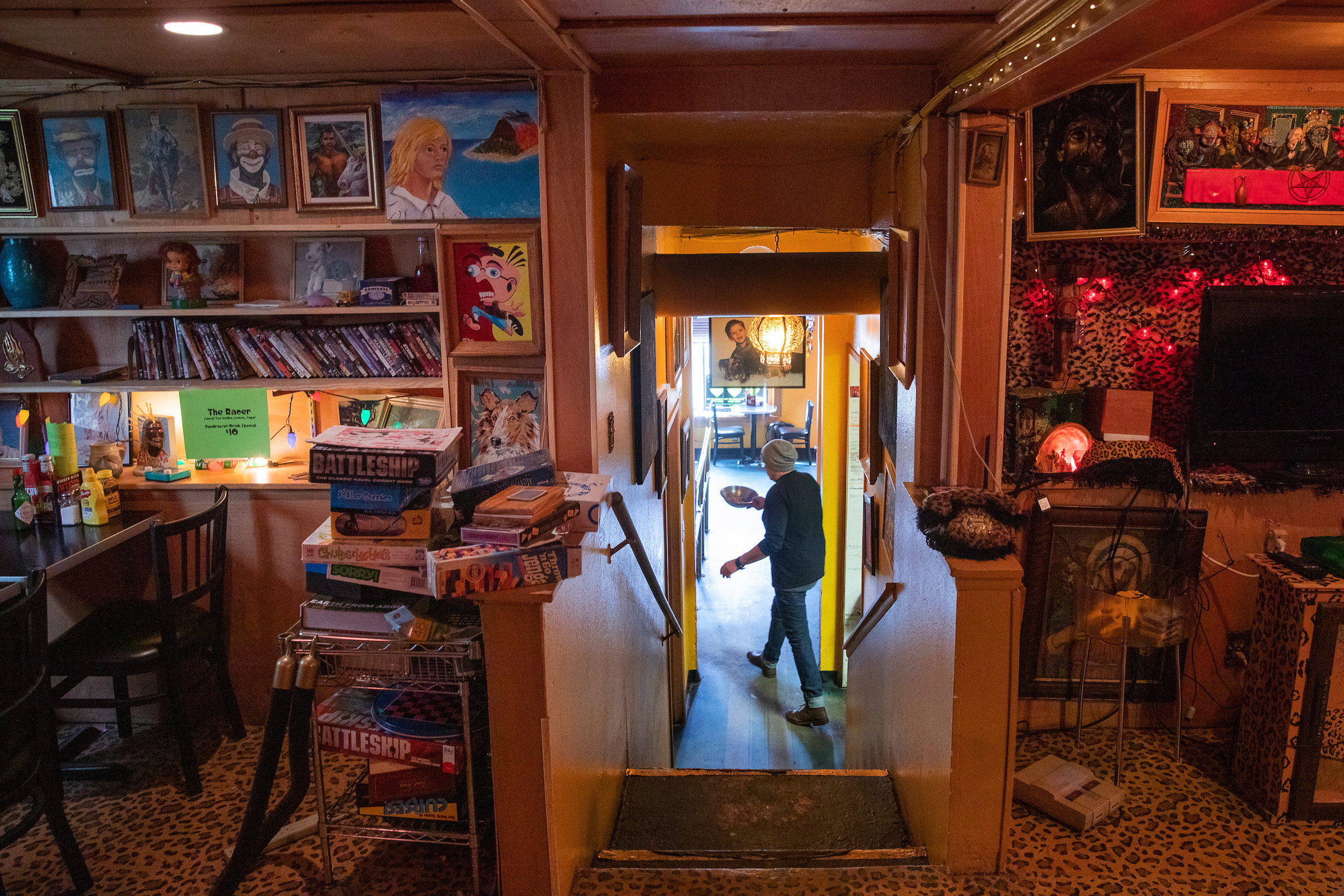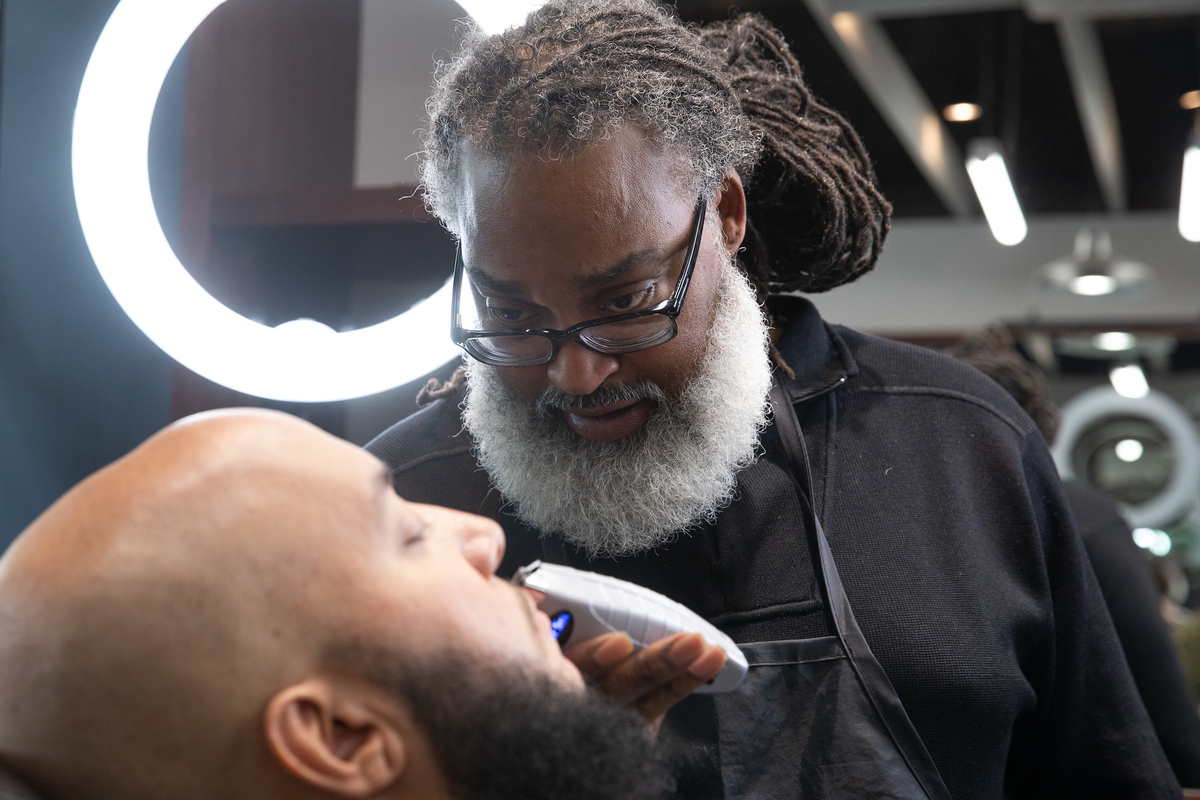Belief in this assertion is why owner Jeff Ramsey has applied for the City’s new Legacy Business Program, a pilot launched by the City’s Office of Economic Development (OED) this month to “combat displacement of longstanding, culturally relevant businesses and support their continued stability and growth in a volatile period of economic growth, change, and opportunity,” according to internal documents.
After an application process closing Feb. 28, seven “Legacy Business” designees (one from each City Council district) will be rolled into the city’s Legacy Business marketing efforts and receive a free promotional video produced by a City contractor. While selected businesses will not receive cash, they will qualify for free legal consultation regarding lease renewal, negotiations and tenants’ rights issues, as well as succession planning — especially important given that longtime small businesses are more likely to close than their larger counterparts when the owner or operator retires, gets sick or passes away.

That Café Racer didn’t close for good after longtime owner Kurt Geissel threw in the towel in late 2017, after years of financial difficulties, is thanks to Ramsey. Just days after Café Racer’s farewell party, Ramsey purchased a majority stake in the beloved café, famous both as an incubator for emerging jazz musicians and for a 2012 shooting that resulted in four fatalities.
“I felt it was important for artists to have a place where they could get started,” Ramsey says. The former longtime patron is now behind the bar, taking orders for coffee, hot chocolate, salads and tequila on a recent Saturday afternoon. “I also felt the living memorial was important. This is the place where people...share in their loss and grief together.”
“We are a community center,” Ramsey continues. “Lots of people come here, order coffee and work for hours — which we love. We have a lot of meet-up groups. But one cup of coffee doesn't help us get to where we need to be financially.” Recently, after a difficult month in which Ramsey broke his neck and was out of pocket, he launched a crowdfunding campaign to help “Save Café Racer.”
A hard-to-fill hole in the neighborhood
With the Legacy Business Program, the city follows in the footsteps of San Francisco. In 2015, the Bay City created a “Legacy Business” registry for culturally and historically relevant businesses at least 30 years old, as well as a voter-approved fund to financially support these establishments. Similar programs have been implemented in San Antonio, London, Paris and Buenos Aires.
But Seattle’s version is nowhere near as sweeping as San Francisco’s, which funded businesses with grants to help encourage property owners to sign longer-term leases. As Washington state law prohibits the “gifting of funds” to private businesses, Seattle’s Legacy Businesses won’t be getting grants. And with only seven designees, Seattle’s program’s scope is a fraction of San Francisco’s (which started with 76 businesses in its first year). However, qualification as a Legacy Business in Seattle requires only 10 years in operation, rather than three decades.
Business tenure isn’t all it takes: Legacy Business establishments must also be independently owned, employ fewer than 50 people, face a significant risk of displacement and serve a community function above and beyond “the basic sale of goods and services,” among other factors.
“Typically,” says a 2017 city-commissioned study, a Legacy Business “is a beloved business that, were it to close, would leave a hole in the neighborhood that would be hard to fill,” particularly in high-risk displacement areas. It could be a grocery, café, bookstore, barbershop, or florist — as long as they function as a linchpin for a cultural community.
Roughly 1,160 businesses in Seattle could be considered legacy businesses, or 5% of all businesses in Seattle, the report notes. It also shows that between 2006 and 2015 (the latest data gathered), Seattle did not lose older, small businesses at a higher rate than in the past, but acknowledged that Seattle was on a trajectory similar to San Francisco’s and New York’s. Women- and minority-owned businesses face particular challenges, and are more likely to close due to lack of access to loans or credit, according to the report.
Designations — which will be decided by a yet-to-be-assembled committee of Central Council staff and community volunteers from different districts — will be announced in May.
So far, OED has received more than 100 applications for the seven spots, the agency says, including Ballard’s last Scandinavian food shop, Scandinavian Specialties; the 31-year-old City People’s Garden Store in Madison Valley; longtime Central District barbershop Earl’s Cuts and Styles (which moved across the street to the new Liberty Bank Building late last year); 2010-born Beacon Hill coffee shop The Station, known for its coffee as much as its beloved Block Party; and West Seattle’s independent record store Easy Street Records.
Keeping grunge history alive
Matt Vaughan still remembers the West Seattle of his teenage years, a blue-collar neighborhood with dilapidated storefronts. He was just a kid when he started working at various record stores in the area, and barely 18 when the owner of one of them handed him the keys. Vaughan took over the business, renaming it Easy Street Records. That was in 1987 — just in time for the eruption of local record label Sub Pop and the grunge “sound of Seattle.”
“We put our arms around the music scene,” says Vaughan, wearing a black T-shirt featuring artwork by Jeff Ament, the Pearl Jam bassist and member of the early grunge band Green River as well as Mother Love Bone. Overhead, guitars roar from Easy Street’s sound system.
Vaughan still remembers Sir Mix-A-Lot’s record release party in ’88. And how could he forget Pearl Jam’s legendary 2005 in-store surprise concert? Or how a still-unknown local rapper named Macklemore regularly dropped off his first mixtapes at the (now-closed) Easy Street Records offshoot in lower Queen Anne? And that time a pre-Grammy Brandi Carlile gave him goosebumps with a 2004 performance at the store.

Recently, when renegotiating his lease, Vaughan briefly considered closing. A 0.25% increase in revenue might be considered a win in an industry with overall low (and declining) revenue, but business isn’t great, and rising costs gnaw at the store’s earnings, Vaughan says. He didn’t hesitate for long, however, thanks to one reason: “West Seattle needs us,” he says, “because we continue to tell the story of Seattle’s music heritage and history.”
For Vaughan, a Legacy Business designation would take the store’s now-landmarked historic building status one step further, and also formally recognize the importance of its more intangible history inside.
Eugenia Woo of Historic Seattle, an early advocate for the Legacy Business Program, says it could be helpful in that traditional preservation tools do not protect the “use” of a business — only a building's physical features. (Which is the case with Easy Street as well as The Showbox.) “More traditional preservation tools don’t necessarily protect these historic businesses,” Woo says.
Nor does the Legacy Business designation offer any direct protections against closure or displacement. But “in a roundabout way, the Legacy Business Program sends a message . . . that the community cares about that business,” says Councilmember Lisa Herbold, another early champion of the program. “My hope is that it will make a property owner more inclined to work with a business owner in those instances.”
“We are seeing more developers work with historic businesses to develop new spaces that they can return to,” Herbold continues. “Earl’s Cuts [and Styles] is such an example. Hugo House, a nonprofit business, was another. Highlighting the importance of legacy businesses to the general public is hopefully going to result in us seeing much more of that happen.”
Last year, Earl’s Cuts and Styles moved from its longtime Central District home in the now-demolished Midtown Center to the ground floor of the Liberty Bank Building, a new affordable-housing development across the street.
Thanks to an “equitable development”-focused collaboration between Africatown Community Land Trust, The Black Community Impact Alliance, Byrd Barr Place, Capitol Hill Housing and Seattle University’s RAMP-up program, Earl’s Cuts was able to stay in the now-gentrified neighborhood that Earl Lancaster has operated out of since 1992.
“We’re still here.”
On a recent afternoon, as rush-hour traffic swells along 23rd Avenue, Lancaster seems entirely settled in. He trims a client’s beard while on a TV screen the Kansas Jayhawks take on the Oklahoma State Cowboys. A couple of people wait in chairs nearby, including a father who barters with his son, already in the hairdresser’s chair. “One inch? No, two. Or three,” he says.

Even though Earl’s is well-known, Lancaster applied to the Legacy Business program to “put a dot on it and cross the T’s,” he says, sitting down after the trim. He wants to make sure everyone knows about how he’s been in the neighborhood for decades, how the shop offers free “back-to-school” haircuts for youth. And also to show that “We’re still here. We haven’t been displaced,” Lancaster says. “If we all come together, stay rooted in our soil, it makes a difference.”
Lancaster financed the move and interior of the new shop with a fundraising campaign, as well as a $50,000 grant from a tenant-improvement fund piloted by the Office of Economic Development. But that fund is separate from the Legacy Business program, according to the OED, and wouldn’t apply to many Legacy Businesses anyway.
Cynthia Brothers, who chronicles Seattle’s soon-to-be-lost or longtime institutions and small businesses through the popular social-media account “Vanishing Seattle,” hopes the Legacy Business program is the first step toward creating a more official pathway for displaced businesses to stay in place or return to their original neighborhoods, much like the “community preference” policy that helps low-income residents stay in gentrifying neighborhoods.
As it stands now, Brothers says, “it seems like [the Legacy Business Program] is not really getting at the root cause, which is commercial affordability. Small businesses are [often] being pushed out because they can’t afford rents or property taxes.” She wonders whether alternate models such as co-ops, land trusts, community benefit agreements or even incentives for developers to retain or rehouse small legacy businesses might be other options.
Herbold says another possibility could be working with CDFIs, local financial institutions that provide credit and financial services to “underserved” markets and populations, to help with credit access for Legacy Business Program designees. But OED says the pilot program, and whether it will continue, will be evaluated at the end of 2020.
Still, Brothers is cautiously optimistic, and even nominated beloved Chinatown-International District bar Bush Garden for the program. The “birthplace of Seattle karaoke” is threatened by pending development and slated for a move to a nearby low-income housing project.
“You’ve got to start somewhere, and this is a good start,” Brothers says. “I think the key is that it doesn’t just stop at being symbolic.”
This story has been updated to include a full list of partners involved in relocating Earl's Cuts and Styles.
Get the latest in local arts and culture
This weekly newsletter brings arts news and cultural events straight to your inbox.





